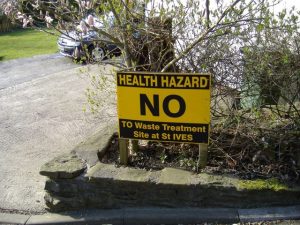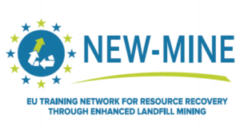Work package 4 develops a multi-criteria assessment for landfill mining concepts and technologies. The three ESRs belonging to WP4 have been working on sustainability assessments of these emerging technologies and concepts, by addressing their environmental, economic and societal impacts. Through the development and application of systems analysis methods and approaches, the overall objective of WP 4 has been to facilitate systematic and trustworthy assessments of economic, environmental and societal impacts of ELFM. Given the early phase of development of this concept and related technologies, a key objective has been to develop learning-oriented assessment approaches that contribute in-depth knowledge on the factors and conditions that influence the impacts and various consequences of such projects. These methods have been applied in specific ELFM cases as well as in a wide range of different landfill management and landfill mining scenarios and settings that could be encountered within European boarders. Beyond guiding future ELFM research towards essential knowledge gaps and sustainability challenges, such assessments on critical performance drivers and trade-offs facilitate the selection and development of sustainable projects and clarify the role of policy and market interventions.

Public acceptance as a key aspect in the implementation of an ELFM project. Source picture: https://www.geograph.org.uk/photo/372466
WP results
Download the results of the WP here:
- Final WP report (pdf)
- WP presentation given at the fifth international symposium on ELFM (Feb. 2020) (pdf)
Results per ESR
Giovanna Sauve (ESR13), based in KU Leuven (Belgium), develops an integrated life cycle assessment (LCA) and risk assessment methodology for ELFM. The ESR has focused on environmental impacts and developed and adopted integrated LCA approaches to address variability and uncertainties in different ELFM scenarios and landfill reference cases, with special emphasis on including spatial and temporal information. In collaboration with ESR13, multiple scenario modelling for integrated economic and environmental assessment was done.
John Laurence Esguerra (ESR14), based in Linköping University (Sweden), has worked on business economics and developed a generic economic assessment model to account for a wide range of ELFM scenario possibilities. The model covers variation of multiple factors and conditions occurring on the site, project and system levels. In addition, it enables more fine-grained assessments of what factors and factor combinations that build up the economy using variance-based sensitivity analysis.
Paul Einhäupl (ESR15), based in KU Leuven (Belgium), looks at policy and market interventions for facilitation of ELFM implementation. This research has employed an anticipatory approach and involved interviews with different stakeholders related to a planned ELFM project in Belgium. In addition, a system dynamics approach has been used to conceptualize the cause-effect relationships of various societal impacts of ELFM. An integrated assessment is being developed by joint-work of the three ESRs.

